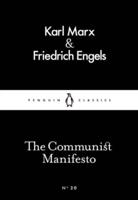Publisher's Synopsis
Challenging both the bureaucratic one-party regime and the Western neoliberal paradigm, China's leading critic shatters the myth of progress and reflects upon the inheritance of a revolutionary past. In this original and wide-ranging study, Wang Hui examines the roots of China's social and political problems, and traces the reforms and struggles that have led to the current state of mass depoliticization.
Arguing that China's revolutionary history and its current liberalization are part of the same discourse of modernity, Wang Hui calls for alternatives to both its capitalist trajectory and its authoritarian past.
From the May Fourth Movement to Tiananmen Square, The End of the Revolution offers a broad discussion of Chinese intellectual history and society, in the hope of forging a new path for China's future.









